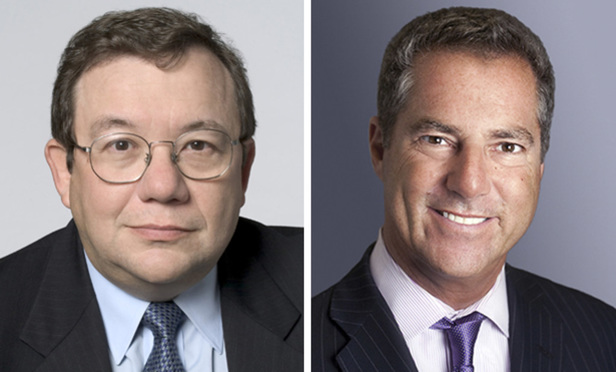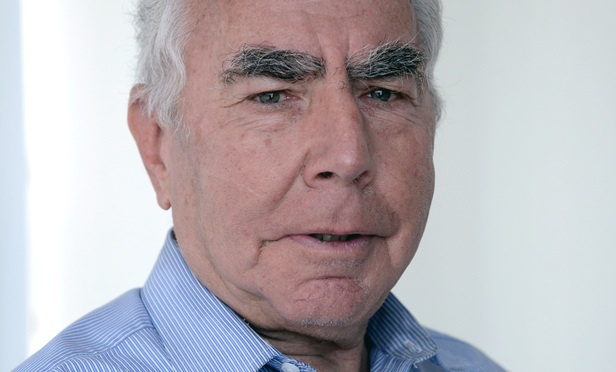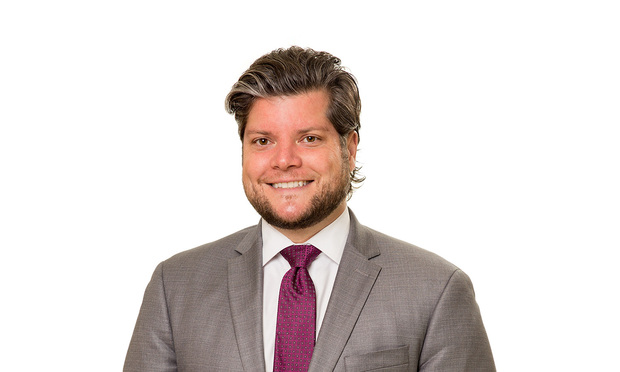Martin

May 26, 2020 | New York Law Journal
Sentencing Under the First Step ActIn their Second Circuit Review, Martin Flumenbaum and Brad S. Karp discuss the court's first published opinion examining the scope of relief offered to certain persons convicted of crack cocaine offenses under the First Step Act. The Second Circuit held that the First Step Act is a statutory source of sentencing relief independent from the U.S. Sentencing Guidelines or any other policy statement that may otherwise preclude a reduction in sentence.
By Martin Flumenbaum and Brad S. Karp
8 minute read
May 22, 2020 | Law.com
Defending FCA Actions Related to Pandemic ProgramsThere will likely be some fraud in connection with the pandemic-related programs that should be pursued by the DOJ and the Inspectors General, who have said they will keep close eyes on these programs. They will have no shortage of targets, given the many recipients of government funds, and the breadth of the requisite certifications.
By Steve Sozio, Rebecca Martin, Rajeev Muttreja and Mark Rotatori
5 minute read

April 28, 2020 | New York Law Journal
Seventh and Ninth Circuits Decide Important 'Heck' IssuesThe Supreme Court in 'Heck' held that a §1983 constitutional claim that "necessarily" implies the invalidity of the plaintiff's conviction is not "cognizable" unless the conviction was overturned on appeal, collateral review, or executive order. This doctrine has generated numerous difficult issues. Martin A. Schwartz discusses two important recent circuit court decisions applying the doctrine in this edition of his Section 1983 Litigation column.
By Martin A. Schwartz
10 minute read

April 22, 2020 | Daily Business Review
How to Navigate Commercial Leasing During a PandemicRestrictions have impacted every sector of the economy. The commercial leasing space is no exception. Despite almost nationwide moratoria on evictions and suspensions of police eviction enforcement activities, on April 1 approximately $81 billion in rent payments came due.
By Shane P. Martin
8 minute read

April 21, 2020 | New York Law Journal
The Second Circuit in the COVID-19 EraIn their Second Circuit Review, Martin Flumenbaum and Brad S. Karp discuss how the pandemic has affected the court, including oral arguments and number of appeals filed, and what to watch for as the crisis develops.
By Martin Flumenbaum and Brad S. Karp
6 minute read

April 21, 2020 | Legaltech News
States Take the Lead on Securing the Internet of ThingsThe California IoT Security Law is the first of its kind in the nation and pushes device manufacturers to adopt cybersecurity standards during the product development and design stages where none have existed before.
By Ashley Thomas, Morris, Manning and Martin
6 minute read

March 23, 2020 | New York Law Journal
The 'Advanced Knowledge' Prong of the FLSA's 'Learned Professional' ExemptionIn their Second Circuit Review, Martin Flumenbaum and Brad S. Karp discuss a recent decision in which the court clarified the standard for determining whether an employee utilizes "advanced knowledge" necessary to qualify for the "learned professional" exemption to the Fair Labor Standards Act's (FLSA) overtime-compensation mandate.
By Martin Flumenbaum and Brad S. Karp
8 minute read

March 09, 2020 | Corporate Counsel
Key Board and Governance Trends: 2020 Proxy Season and BeyondCompanies will face more scrutiny than ever in 2020, and general counsel must help executives and directors understand changing expectations of firm behavior.
By Abbott Martin
6 minute read

March 02, 2020 | New York Law Journal
Multiple Police Officer DefendantsMartin Schwartz discusses Section 1983 complaints that assert claims against multiple police officers. These claims present difficult issues and can be particularly challenging.
By Martin A. Schwartz
13 minute read

February 25, 2020 | New York Law Journal
Narrowing the Definition of Quid Pro QuoIn their Second Circuit Review column, Martin Flumenbaum and Brad Karp discuss 'United States v. Silver,' a decision they write "limits significantly the Second Circuit's longstanding bribery precedent, raising the bar for what the government must prove to establish the existence of a quid pro quo in public corruption cases."
By Martin Flumenbaum and Brad S. Karp
9 minute read
Trending Stories
More from ALM
- Legal Speak at General Counsel Conference East 2024: Match Group's Katie Dugan & Herrick's Carol Goodman 1 minute read
- Legal Speak at General Counsel Conference East 2024: Eric Wall, Executive VP, Syllo 1 minute read
- Legal Speak at General Counsel Conference East 2024: Virginia Griffith, Director of Business Development at OutsideGC 1 minute read



